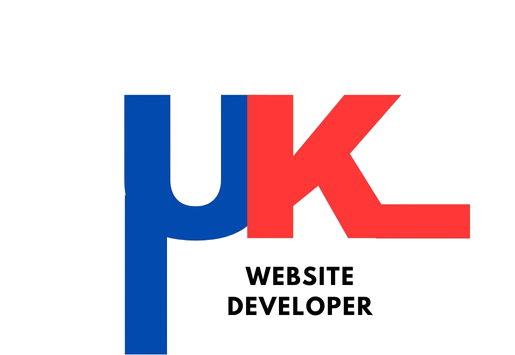website is necessary for all businesses.This paragraph serves as an introduction to your blog post. Begin by discussing the primary theme or topic that you plan to cover, ensuring it captures the reader’s interest from the very first sentence. Share a brief overview that highlights why this topic is important and how it can provide value. Use this space to set the tone for the rest of the article, preparing readers for the journey ahead. Keep your language approachable, yet informative, to create a strong connection.
Sometimes, the simplest moments hold the deepest wisdom. Let your thoughts settle, and clarity will find you. Use this quote space to share something inspirational or reflective, perfectly aligned with the theme of your article.

This paragraph dives deeper into the topic introduced earlier, expanding on the main idea with examples, analysis, or additional context. Use this section to elaborate on specific points, ensuring that each sentence builds on the last to maintain a cohesive flow. You can include data, anecdotes, or expert opinions to reinforce your claims. Keep your language concise but descriptive enough to keep readers engaged. This is where the substance of your article begins to take shape.
As you move toward the midpoint of the article, this paragraph provides an opportunity to connect earlier ideas with new insights. Use this space to present alternative perspectives or address potential questions readers might have. Strike a balance between depth and readability, ensuring the information remains digestible. This section can also serve as a transition to the closing points, maintaining momentum as you steer the discussion to its final stages.
Wrapping Up with Key Insights
In this concluding paragraph, summarize the key takeaways from your article, reinforcing the most important ideas discussed. Encourage readers to reflect on the insights shared, or offer actionable advice they can apply in their own lives. This is your chance to leave a lasting impression, so make sure your closing thoughts are impactful and memorable. A strong conclusion not only ties the article together but also inspires readers to engage further.
Why a Full Web Matters for Small Businesses
In today’s digital world, a full websites is not just a luxury but a necessity for small businesses. Whether you’re a local shop or a growing startup, having an optimized websites enhances credibility, attracts customers, and boosts sales. With consumers turning to the internet for information, businesses without an online presence risk losing potential customers to competitors.
A websites serves as your digital storefront, offering valuable insights about your products, services, and brand. In this guide, we’ll explore the key benefits of having a full websites and why it’s crucial for small business success.
The Digital World and Small Businesses
The evolution of the internet has profoundly shifted business activities. Customers, for instance, search online long before making any purchasing decisions. This implies that small businesses that do not have a strong online presence are missing potential opportunities to interact with customers.
According to recent research, more than 70% of consumers do some form of online research before visiting a shop. This underscores the significance of having a well-structured website that not only showcases your products or services but also establishes trust with your target consumers.
Full Websites: Key Advantages
Builds Trust and Credibility
Registered businesses with an official domain have an email address bearing the business name; therefore, they are perceived as flexible, trustworthy, and authentic. Lack of websites makes them rely on social media pages, and this exposes them to scammers. Formal websites will provide valuable and trusted information to gain customers’ trust. Social proof through customer testimonials and an “About Us” page enhances credibility.
Boosts Customer Engagement
Businesses and clients can directly interact with willing customers through chatbots, social media widgets, and contact forms. Informative blogs, videos, and FAQ pages capture the attention of site visitors, which encourages them to return.
Promotes Business via SEO
Improved branding through social media pages and search engines augments branding through Social SEO approaches, making social media pages rank high on search engines, which helps people locate the business quickly. The integration of optimised content, strategically placed keywords, and local SEO ensures that your business appears in relevant searches.
Offers Competitive Edge To Small Businesses
Full websites offer small businesses an avenue through which they can compete head on with more established businesses, or those with large market share. With a well-branded domain name and extensive business listing, small enterprises can be easily noticed and contacted. Competitive advertising will increase exposure and, if strategically placed, this will increase product or service uptake.
- Facilitates Leads and Sales
Through strong CTAs, forms, and e-commerce integration, a website becomes a lead and sales capturing mechanism. Use of this technology to automate payments makes the entire buying process effortless.
Offers Affordable Marketing
As with every other business, a website provides a lower cost option for marketing. Incorporation of social media and advertisement through content emails broadens the ability to reach an audience at little to no cost.
Stays Ahead of the Competition
Many competitors already have websites. Outpacing them requires a site carefully optimised and containing many helpful resources as well as quick load times and easy navigation. Not having a website means the company loses considerable market share to competitors who are adept in technology.
Elevate Customer Support and Communication
Customer dissatisfaction stems from gaps in service dealing with issues such as FAQs, response automation, and live chat during non-office hour times.
Essential Elements of a High-Performing Website
Domain Name and Hosting: Relevant domains capture visitors’ attention and convey the philosophy of your company, while effective hosting aids in the continuity of speed and security.
Responsive Design: Facilitates a perfect experience on any mobile device.
Search Engine Optimization (SEO): Keyword placements, page speed, and backlinks all contribute positively for search engines.
Compelling content: Unique blogs, descriptions, and multimedia capture user attention.
Security and privacy: Customer security is protected through the use of SSL certificates and secure payment gateways.
Advertising Your Small Business Online
Neglecting mobile optimisation
Omitting clear CTAs
Failing to follow standard SEO procedures
Slow load speeds and disorganised navigation
Lack of content updates
With a limited budget, how can I create a professional looking website?
Build your site with platforms like WordPress, Wix, or Shopify
Take an initiative through inexpensive and free theme projects
Implement a DIY SEO
Always make use of Google My Business
Engage freelancers for selective jobs like design or proposals
The Most Asked Questions:
Social Media and Websites can coexist and serve a joint function. However, the social media platform is ill-fitted to replace a website. A website affords the branded business and the owners more control regarding the content that is put out, including how they interact with customers and respond to user-generated content.
Budget affects the cost. Simpler projects offer basic websites starting at £100-1000 that basic web builders can create. Proprietary custom-built sites can go for thousands.
Competitively relevant keywords, improved load speeds, optimised content, and backlinks would meet the criteria.
4. Do you need a mobile-friendly website?
Definitely. A responsive design provides a user-friendly experience which is necessary for over half of web traffic coming from mobile devices.
- What is the appropriate frequency for website updates?
To improve SEO, website content must be updated frequently. Security settings, product listings, and blog posts should be updated at a minimum monthly frequency.
- Is it possible to create a website by yourself?
Absolutely. With online tools at your disposal, you do not need technical skills in order to create a personal website. That said, contracting a professional would always yield higher quality results.
Conclusion
Small businesses need fully functioning websites to boost their credibility and increase sales. By investing in well-designed and optimised sites, businesses can gain a competitive edge, underscoring the importance of having a website in this day and age.
